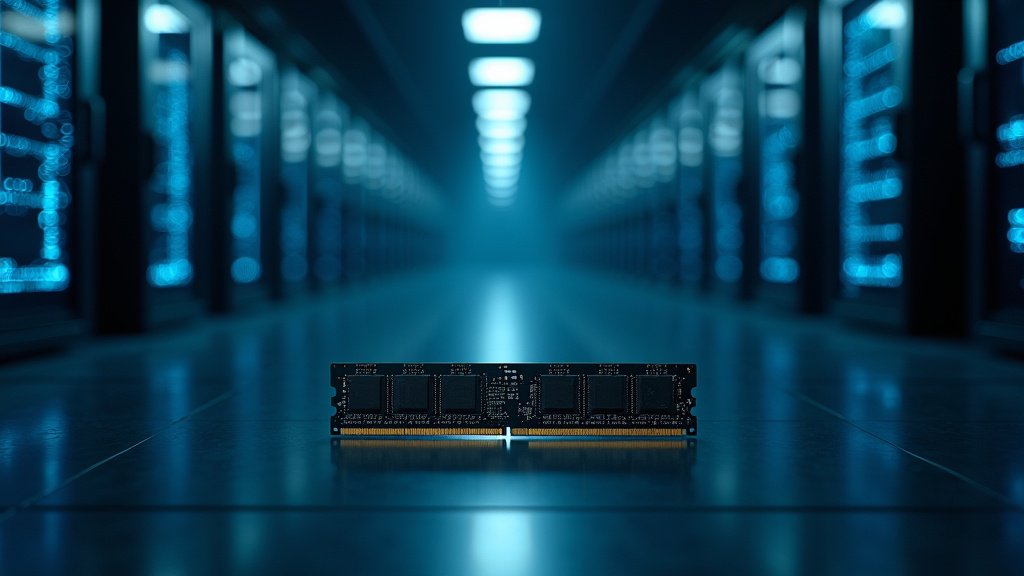The Looming Memory Chip Shortage: Tech Giants Issue Stark Warnings
Major technology firms are issuing stark warnings about the impending memory chip shortage. Dell and HP lead these calls, anticipating significant shortages by 2026. This situation stems from a massive surge in demand, primarily driven by artificial intelligence infrastructure, contributing to the growing memory chip shortage. This emerging news is critical for the technology sector, highlighting the realities of the memory chip shortage.
The AI Memory Appetite Explodes Amidst Memory Chip Shortage Concerns
Artificial intelligence systems require vast amounts of memory. AI servers need far more DRAM and NAND flash memory compared to traditional systems, pushing chipmakers like Samsung and SK Hynix to their limits. High-Bandwidth Memory (HBM) chip production is particularly crucial for advanced AI accelerators. The buildout of AI data centers is accelerating rapidly, requiring huge quantities of advanced memory chips, directly impacting the memory chip shortage. For example, a single AI server needs about eight times the DRAM of a conventional server, contributing to the growing memory chip shortage.
Production Lines Pivot to AI, Exacerbating the Memory Chip Shortage
Chip manufacturers are making strategic shifts, prioritizing high-margin AI-specific chips that command premium prices. This production shift reduces capacity for standard memory chips, with companies like Samsung and SK Hynix leading this trend due to greater profitability in AI components. This reallocation is happening globally, exacerbating shortages for common memory types and the overall memory chip shortage. Past under-investment also plays a role; downturns in 2023 and early 2024 limited capacity expansion, and manufacturers are now struggling to catch up, creating a significant supply-demand imbalance, intensifying the memory chip shortage. Moreover, massive AI chip demand further destabilizes the market, intensifying the memory chip shortage.
Market Shockwaves: Memory Chip Prices Soar and Stockpiling Begins
The consequences of the memory chip shortage are already taking shape. Memory chip prices are expected to skyrocket, with Counterpoint Research forecasting a 50% increase by the second quarter of 2026. Some reports suggest DRAM price increase trends are significant year-over-year, and some components have doubled or even fivefold in cost. This trend is impacting consumer electronics profoundly, leading to price increases for flagship devices. Dell’s COO Jeff Clarke noted extreme cost fluctuations, and HP CEO Enrique Lores plans price increases and aims to secure more suppliers. Meanwhile, other companies like Lenovo and Xiaomi are stockpiling memory chips to anticipate future cost hikes driven by the memory chip shortage.
Voices from the Industry on the Memory Chip Shortage
Dell Technologies and HP Inc. are among the most vocal regarding the memory chip shortage, warning that these shortages could impact all devices, from PCs to cars. China’s SMIC also warned of production limits. SK Hynix has already sold out its 2026 supply, and Micron expects tight supply well into 2026. These warnings signal a complex and trending situation in technology, highlighting a growing fracture in the tech supply chain where memory is becoming a scarce commodity due to the memory chip shortage.
Outlook for 2026 and Beyond: A Persistent Memory Chip Shortage
The memory chip shortage is expected to persist through 2026, with some forecasts extending this crunch even further. The core issue is the sustained AI chip demand, with this AI chip demand outstripping current HBM chip production capabilities. Memory makers are unlikely to rapidly expand capacity quickly, as building new fabrication plants takes significant time and investment. This means higher memory chip prices may become the new normal, with consumers likely bearing the brunt of these costs and expecting higher prices for gadgets in 2026, potentially signaling a 2026 chip crisis. This situation is a key piece of technology news impacting global markets due to the ongoing memory chip shortage.
A New Era for Memory: Navigating the Memory Chip Shortage
The AI revolution is undeniably reshaping the memory market, driving significant memory chip prices and creating widespread tech supply chain challenges. Tech giants like Dell and HP are navigating this new landscape, facing tough decisions on pricing and supply amidst the memory chip shortage. The future of consumer electronics may depend on how this memory crisis unfolds, as the industry races against time to balance AI data centers’ memory needs with consumer demand, all under the shadow of a persistent memory chip shortage, possibly signaling a 2026 chip crisis.





